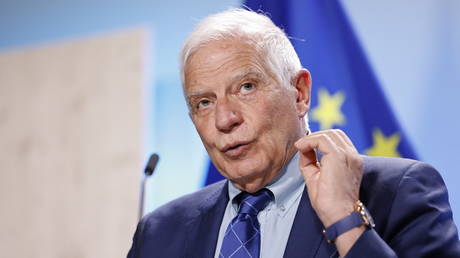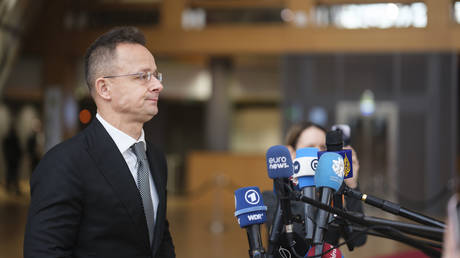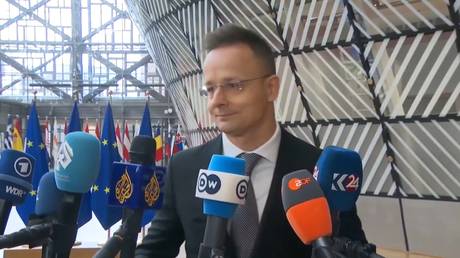
The EU foreign policy chief highlighted the need for ammo shipments but did so unilaterally, South Korea’s defense ministry says
South Korean Defense Minister Lee Jong-Sup never discussed ammunition shipments to Ukraine with EU foreign policy chief Josep Borrell, the ministry told journalists on Sunday.
It was referring to Borrell’s since-deleted tweet saying he had “a good meeting” with Lee on the sidelines of Shangri-La Dialogue security summit in Singapore. “Shared alarm at continued [North Korean] provocations and discussed Ukraine’s needs for ammunition,” he wrote at the time.
The South Korean Ministry of Defense contradicted this statement, however, claiming it was “not true” that Lee Jong-Sup and Borrell had a “discussion about ammunition support” for Kiev.
It went on to elaborate that the EU diplomat had “mentioned that various weapon systems and other support means are needed to improve Ukraine’s situation against Russia, but there was only a unilateral position that ammunition was important.”
Following the backlash from Seoul, Borrell’s tweet was deleted and replaced with another one, with the last phrase reading “I explained Ukraine’s needs for ammunition.”
Since the start of the Ukraine conflict in February 2022, South Korea has provided Kiev hundreds of millions of dollars in financial and humanitarian assistance, but has insisted on not sending lethal aid. However, in April, South Korean President Yoon Suk Yeol signaled that Seoul might change its stance on the matter should a “serious violation of the laws of war” in Ukraine take place.
Last week, the Wall Street Journal reported, citing a “confidential arrangement” with the US, that South Korea had agreed to supply Ukraine with hundreds of thousands of artillery shells. Commenting on the report, Seoul’s officials said it contained “inaccurate parts,” but would not elaborate further.
Russia has repeatedly condemned the West for sending weapons to Ukraine, claiming that it only prolongs the conflict. In late April, Russian Foreign Ministry spokeswoman Maria Zakharova warned South Korea against following this path, noting that Moscow would interpret it as “an openly hostile anti-Russian move.”




